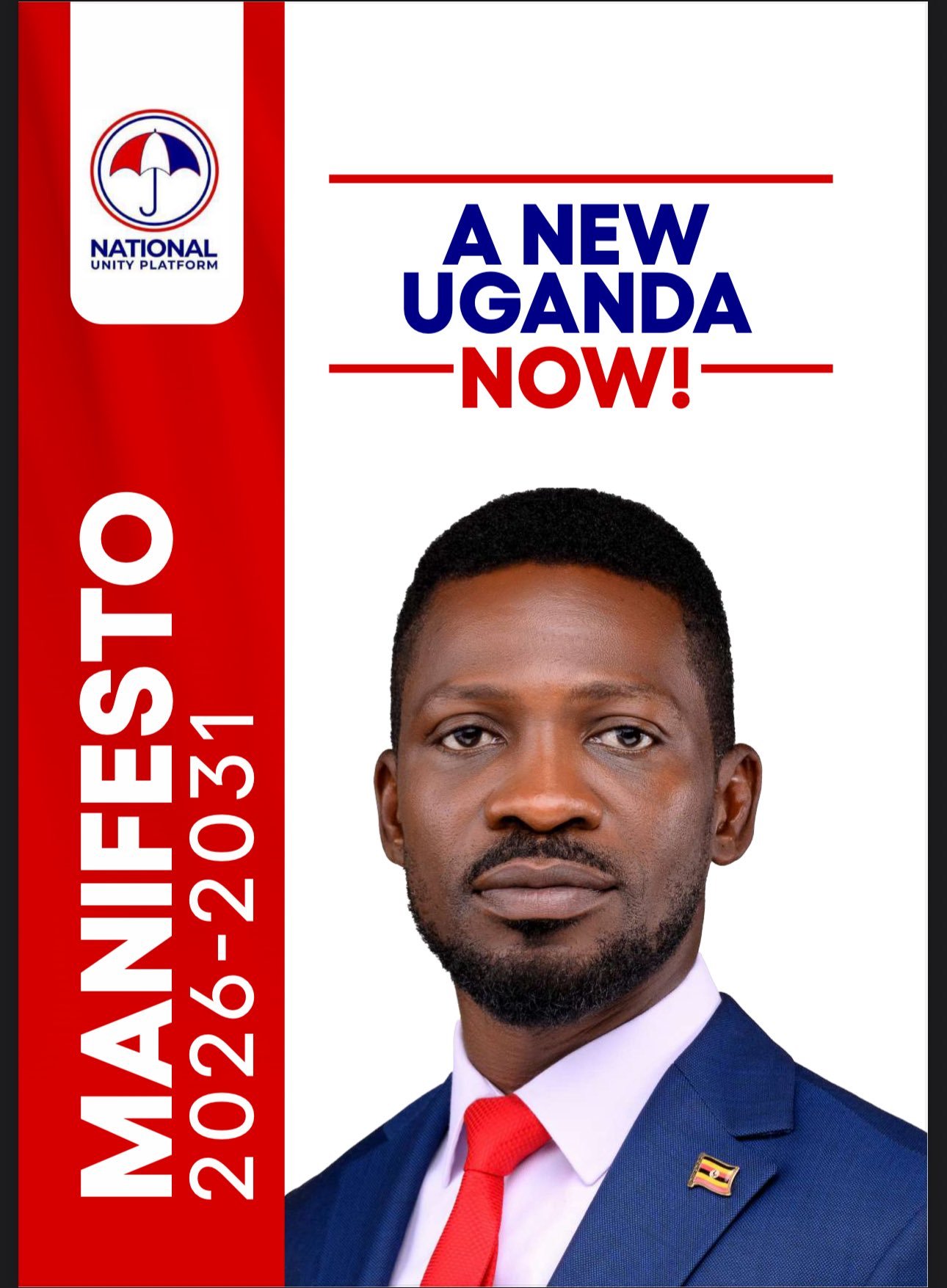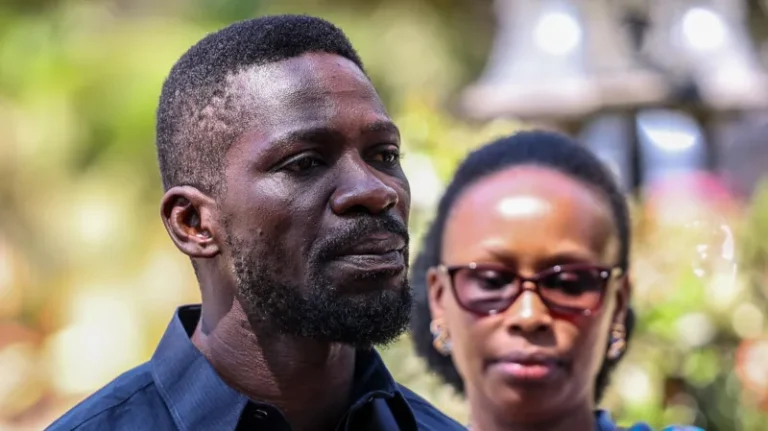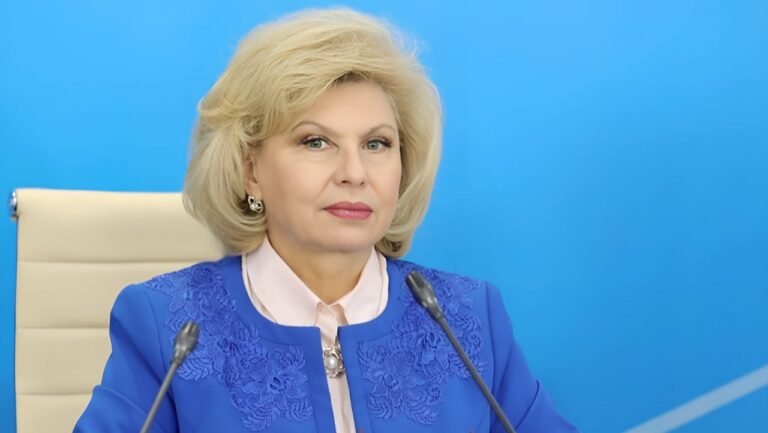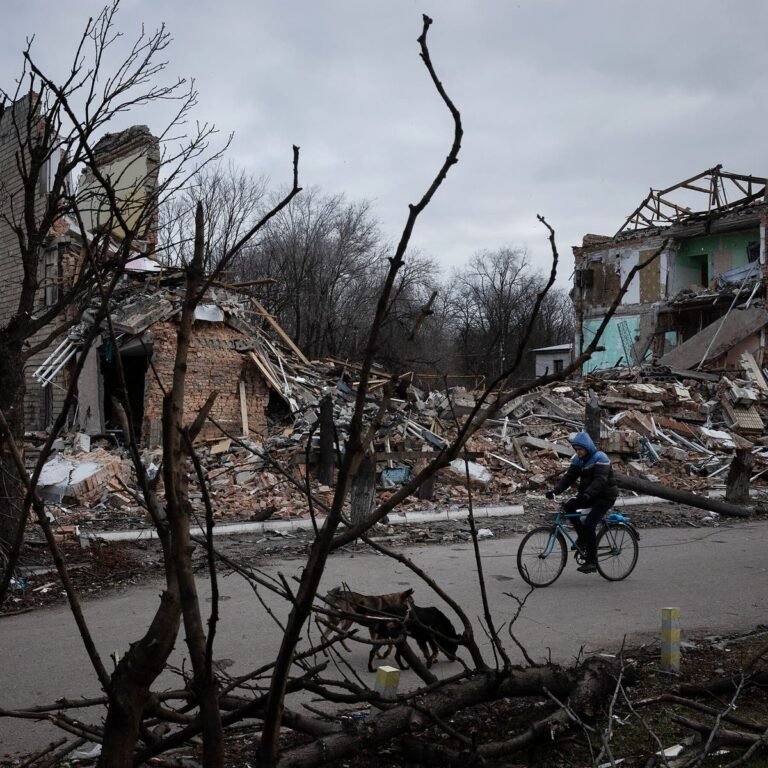
A New Uganda Now: A Summary of the National Unity Platform’s 2026-2031 Manifesto
The National Unity Platform (NUP) has unveiled its manifesto for the 2026-2031 election cycle, titled “A New Uganda Now.” This document serves as a bold and comprehensive blueprint for what the party promises will be a “complete reset” of the nation, aiming to address decades of what it describes as dictatorship, corruption, and economic mismanagement under President Yoweri Museveni’s long-standing rule.
Positioned as a “solemn contract with the people of Uganda,” the manifesto outlines an ambitious vision to restore democracy, foster national unity, and unleash the country’s economic potential. Here are the key pillars of the NUP’s plan.
The Case for Change: A Nation in Crisis
The manifesto opens with a stark assessment of Uganda’s current state, citing a litany of challenges:
· Democratic Decline: The document accuses the NRM government of systematically dismantling democratic institutions, undermining the constitution by removing presidential term and age limits, and compromising the independence of the judiciary and parliament. It highlights the misuse of military courts to try civilians and the suppression of dissent.
· Rampant Corruption: An estimated UGX 10 trillion is lost to corruption annually, funds that could otherwise be channeled into critical services like health and education.
· Economic Distress: Despite a growing economy, over 7.3 million Ugandans live in absolute poverty. Youth unemployment is a crisis, with 50.9% of young people not in education, employment, or training. The national debt has ballooned to over Shs 116 trillion, with debt servicing consuming more than half of the national budget.
· Collapsing Public Services: 82 districts lack a public general hospital, and 78% of sub-counties lack a Health Centre III. The education system is underfunded, and only 3.9% of Uganda’s road network is paved.
· Sectarianism and Division: The manifesto points to ethnic favoritism in public appointments and the unhealed wounds of past conflicts in regions like Luwero, Acholi, West Nile, and Teso as major barriers to national unity.
The “First Eleven”: Core Policy Priorities
In response to these challenges, the NUP has outlined eleven key priorities to be implemented between 2026 and 2031.
- Restore Freedom, Constitutionalism, and Human Rights
The NUP pledges to reverse amendments that removed presidential term and age limits,guarantee judicial independence, and end the trial of civilians in military courts. It promises to protect media freedoms, stop internet shutdowns, and rebuild electoral integrity by making the Electoral Commission independent. - End Corruption and Wasteful Government Expenditure
The party commits to a zero-tolerance policy on corruption,vowing to digitize government payments and empower anti-corruption bodies. It promises to slash “wasteful spending,” including reducing the size of the cabinet, cutting the number of MPs, and abolishing “redundant” offices like Resident District Commissioners (RDCs). - Consolidate National Unity and Rebuild War-Torn Communities
A National Truth,Reconciliation, and Accountability Commission will be established to address past atrocities. The NUP also promises a War Victims’ Reparations Fund and measures to end sectarianism in public service recruitment through “blind recruitment” processes. - Guarantee Equal Access to Quality Public Services
This ambitious pillar includes:
· Health: Increasing health spending to 15% of the budget, placing a doctor in every parish, and procuring helicopter ambulances.
· Education: Making primary education completely free (including meals and materials), embedding vocational skills in curricula, and providing digital tools to students.
· Water & Sanitation: Ensuring universal access to safe water and providing free public toilets in urban areas.
· Infrastructure: Increasing the paved road network from 3.9% to 20%, fast-tracking the Standard Gauge Railway, and upgrading regional airports.
· Energy: Lowering electricity tariffs by scrapping VAT, renegotiating power contracts, and expanding grid and solar access.
- Create 10 Million New Jobs by 2032
The NUP plans to achieve this by leveraging three key sectors:
· Tourism (25.3%): By increasing funding, streamlining visas, and protecting wildlife areas from activities like oil drilling.
· Manufacturing (60%): By establishing 30 new industrial parks, lowering the cost of doing business, and expanding access to finance for SMEs.
· Sports & Creative Economy (14.7%): By boosting investment in sports infrastructure and creating a National Creative Industries Development Fund.
- Establish a Public-School Feeding Program
This program aims to transform agriculture,ensure food security, and improve education outcomes. Food will be sourced locally from smallholder farmers, creating a stable market and boosting enrollment. - Stop Land Grabbing and Guarantee Secure Land Rights
The party pledges to secure customary land rights,protect tenants, and use blockchain technology to create a fraud-proof national land registry. It also promises strict penalties for illegal land grabs. - Empower Regional and Local Governance through Real Devolution
A key promise is to abolish the offices of RDCs and increase the local government share of the national budget from 7.6%to 40% by 2030. A National Devolution Dialogue Council will explore creating regional governments. - Position the Diaspora as a Strategic Asset
The NUP will legislate for diaspora voting,launch a Diaspora Investment Fund, and offer dual citizenship and fast-tracked national IDs to Ugandans abroad. - Ensure Sustainable Management of Natural Resources
The manifesto commits to climate-resilient policies,including a National Adaptation Fund, green job creation, and the restoration of degraded ecosystems. - Transform Uganda into a Tech-Driven Economy
This involves halving the cost of internet,making digital literacy a core subject in schools, digitizing public services, and positioning Uganda as a Business Process Outsourcing (BPO) hub.
A Final Call to Action
The manifesto concludes with a powerful call to action, framed by the rallying cry of “People Power—Our Power.” It invites all Ugandans to join in building “A New Uganda Now—a Uganda that is democratic, just, inclusive, peaceful within itself, and respected among the nations of the world.”
The document presents a stark choice: continue on the current path or embrace a bold new vision for the nation’s future. As the 2026 elections approach, this manifesto sets the stage for a contentious and transformative political battle.








